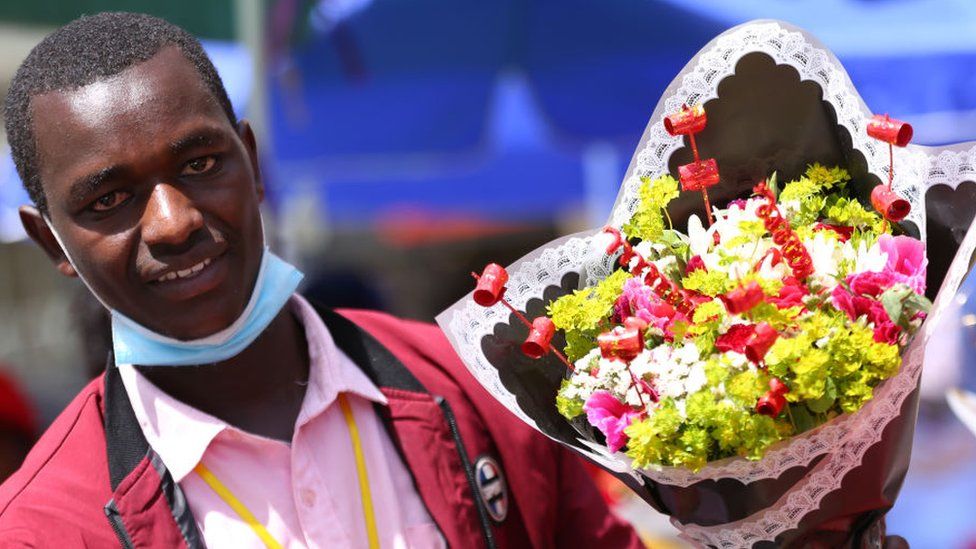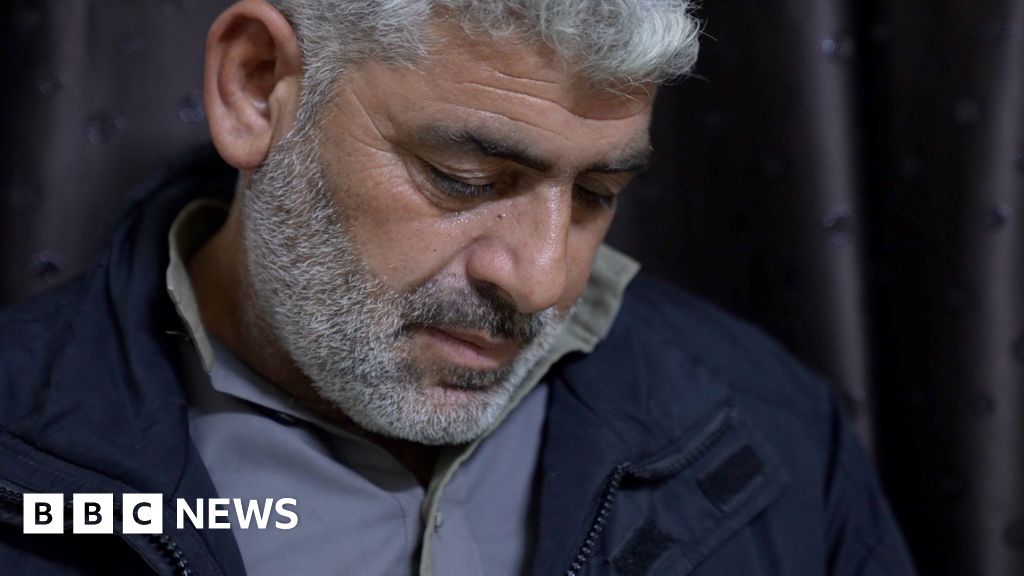ARTICLE AD BOX
 Image source, Getty Images
Image source, Getty Images
Many Kenyans buy roses to show their love on Valentine's Day
By Basillioh Rukanga
BBC News, Nairobi
If you're a man on Kenyan social media this Valentine's Day, you might be invited to an all-male conference, where women are banned.
The event will be sold as a way to have fun in the company of other men, and get away from the pressures of showing your love for your female partner.
There might even be alcohol or grilled meat on offer.
Until recently, these events had never materialised - they've been an elaborate social media meme.
But an outsider could easily be convinced that they're real given the posters all over social media ahead of Valentine's Day, and on the actual day.
Often, they will indicate where the conference will be held and include photos appearing to depict ongoing preparations and others purporting to show the event.
One which has been widely shared is a video depicting a group of men inside a plane, with a voiceover saying they are going for the men's conference.
"We'll be back on 15 February, that's the earliest flight we can catch back," the man says, making it obvious they won't be around for Valentine's Day to perhaps buy roses and spend time with their partners.
It is framed as an event where men are taught to be free and independent in whatever they do - but mostly regarding their relationships.
It is praised by some, but some see the entire conversation as sinister, saying it promotes misogyny in what is already a very patriarchal society.
Charles Kinyua, a businessman, tells the BBC that the concept of the men's conference is welcome.
He says it is a relief for men because "on a day like today, the expectations for men" from their partners are "unrealistic".
Men are always under pressure on Valentine's Day to shower gifts on their women, he says, and expectations are so high that in many cases, "nothing you do will be satisfactory".
The "myth" of the men's conference, as he calls it, gives the men some relief by "advocating for the boy child's freedom and courage to feel less oppressed".
Only, it might be more a case of comic relief.
The leaders of the so-called men's conferences have been polygamists - seen by some as people who go against the grain, against societal pressures, to do what they want to do.
Just before Valentine's Day, the self-proclaimed chairman of the men's conference, Stephen Letoo, who works as reporter for local station Citizen TV, shared an advisory directing "all women to pack their husbands' bags in full" for the conference and to expect them home on Sunday at the earliest.
For the past two years, actual events have been organised in the capital Nairobi for men to share advice with each other, however they have been so small that they are hardly noticed.
But it's often difficult to tell what's true and what's not, for some of the speakers are imaginary - especially those shared on social media.
Women's rights activist Edita Achieng believes there should be spaces for men to share advice.
She says they could allow men to be "vulnerable" and to mentor boys, especially because "boys do not grow with good role models". But such meetings, she says, should not happen just on Valentine's Day.
She says in a patriarchal society, the conference can be "a way to change that narrative, to build a man that fits in the society and do away with things like gender roles," she tells the BBC.
But another women's rights activist, Achieng Ayot, disagrees.
She says the idea of the conference is about giving men tools "not to allow themselves to be controlled and a way to promote a man's world" which is linked to "misogyny when women do not agree to conform to the set-ups in the society".
She says the conference stems "from the concept that women are the consumers of Valentine's Day, that they are loved and gifted".
"Why would you take one of the couple to attend a function [and]... not allow the other to attend, yet the day is about love?" she asks.
It's a question that might be worth pondering, but which the organisers and participants in the men's conference, whether real or not, might not be too keen to consider.

 11 months ago
104
11 months ago
104








 English (US) ·
English (US) ·